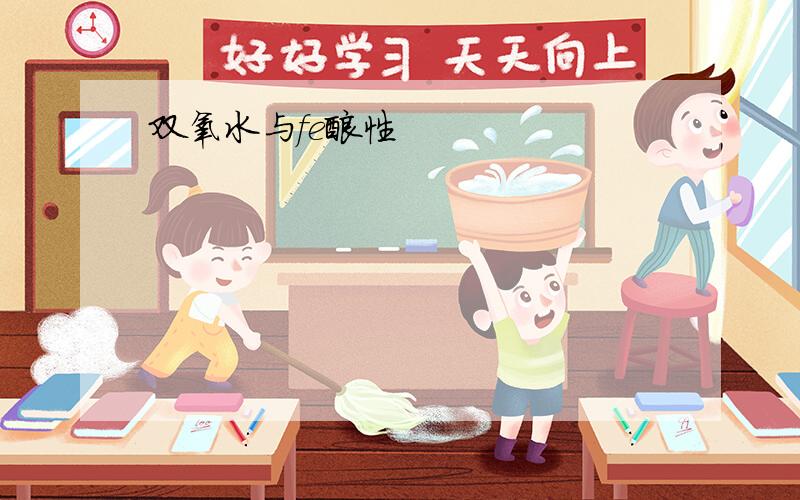双氧水与fe酸性
来源:学生作业帮助网 编辑:作业帮 时间:2024/11/15 07:03:42

填动词be的适当形式:When ( ) the first time they ( ) in Beijing?肯定会用到be的过去式的,脑子短路一时想不起来了,查又查不到,
Harry did not stop his car at some traffic lights when they were red,and he hit another car.HarryHarry did not stop his car at some traffic lights when they were red,and he hit another car.Harry jumped out and went to it.There was an old man in t
用括号中所给动词的适当形式填空.when the bus _________ ( shop) ,they get on the bus.
分句子的主语和谓语
下面句子主语与谓语分别是//那个?to unzip all files in dx9sdk.exe to the specified folder press the unzip button
棕榈岛怎么样
棕榈岛的英语怎么说
A:Hello.May I speak to Anna?B:Sorry,she isn't i__电话用语
迪拜棕榈岛有几个岛?是不是有杰尔贝里棕榈岛 和朱美拉棕榈岛?还有其他什么岛?我想知道每个岛的英文名
Hello!May I speak to Lily?sorry,she isn't in now.Can I ___ a message for youA take B leave C give D bring
请问棕榈岛用英文怎么说~
Hollo!may I speak to jane ,please?Sorry.She( )in now
——Hello!May I speak to Lingling,please?——Sorry,she isn't here at the moment.______.A.You have the wrong number.B.I will call you backC.Can I take a message D.Hold on for a moment
——Hello,may I speak to Alice?——Sorry.She isn't in.She ______ to the zoo with her brother.是 has gone 但是 为什么不用has been呢?老师不是说那个什么不能用瞬间动词呀~
She and I___(be) Chinese
I.he.she.it.we.you.they的be动词是什么
Both she and I ( )from Canada.用be动词填空
i she it后面是不是都需要跟动词或者是BE动词
were的否定读音怎么读来的
you and i后面加什么be动词
were和 wore读音区别RT
如何辨别was和were的读音?
判断下面句子的句式.1,春秋末期,齐国和楚国都是大国.( )2.我应该在烈火与热血中得到永生!( )3.难道齐国没有人了吗?( )4.你帮我把这些砖搬到屋后去吧.( )
那位好心人能把这句话用正确的语法表达出来Sorry!Be my mistake!I do not think to your feel!If not bad give me a chance!I can change!
英语一小题填空 Mary:Hello.__1___?Mary speaking here.Lucy:Hello,Mary.This is Lucy.Mary:Lucy,
Hello,this is Lily speaking,can I speak to Mr Fox?Sorry,he( )the Long Lake
They go to school
they d__go to school
they go to school ( )monday ( )they go to school ( )monday ( ) friday.
抒情英文歌,开头一个女声一直重复一句WHY WHAT YOU EVER
那个高潮是what ever you do where ever you go是什么歌what ever you do where ever you go
-Hello,this is Lily speaking.Could I speak to Mr.Black?-Sorry.He __ the Xuanwu Lake ParkA.has been to B.went to C.has gone to D.will go to